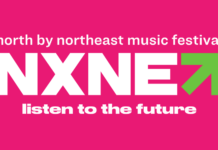By Mitch Rice
Blockchain technology and musical artistry have recently begun to converge, creating an unexpected alliance that is reshaping the music industry’s landscape. This surprising partnership, which goes beyond mere interest in Dogecoin price fluctuations, is ushering in a wave of technological advancements transforming how music is crafted, shared, and experienced by audiences worldwide.
In this exploration, we’ll delve into how these cutting-edge digital financial tools, from established cryptocurrencies to emerging blockchain applications, are making waves in the world of beats and harmonies.
What is Cryptocurrency?
Before diving into the music scene, let’s quickly review cryptocurrency. In simple terms, cryptocurrency is a digital or virtual currency that uses cryptography for security. Unlike traditional currencies governments issue, cryptocurrencies are decentralized systems based on blockchain technology. Bitcoin, the original and most well-known cryptocurrency, was introduced in 2009, but today there are thousands of other cryptocurrencies in existence.
The Current State of the Music Industry
The music industry has undergone significant changes in the digital age. Streaming platforms like Spotify and Apple Music have become the primary way people consume music, replacing physical albums and digital downloads. While this has made music more accessible to listeners, it has also created challenges for artists, particularly regarding fair compensation and control over their work.
How Cryptocurrency is Changing the Game
Now, let’s look at how cryptocurrency is shaking things up in the music world:
Direct Fan-to-Artist Payments
Cryptocurrency allows fans to support their favorite artists directly without intermediaries. This means more of the money goes straight to the creators. Artists can receive payments in cryptocurrency for their music, merchandise, or even tips during live streams. This direct connection between fans and artists fosters a more supportive and engaged community.
Micropayments
One of cryptocurrency’s strengths is its ability to send tiny amounts of money (micropayments). This feature is handy in the music industry, where listeners can pay small amounts for each song they stream. This model could provide artists with a fairer compensation system than the current streaming models.
Smart Contracts and Royalties
Blockchain technology, which underlies most cryptocurrencies, allows for creating smart contracts. These are contracts that automatically execute, with the terms of the agreement embedded directly in the code. In the music industry, smart contracts can automatically distribute royalties to all parties involved in a song’s creation (songwriters, producers, performers) when the song is played or purchased. This system ensures faster, more transparent payments.
NFTs and Digital Collectibles
Non-fungible tokens have taken the art world by storm, and the music industry is catching on. Artists are selling unique digital assets, such as limited edition album artwork, unreleased tracks, or virtual concert tickets, as NFTs. These digital collectibles provide a new revenue stream for artists and a new way for fans to own a piece of music history.
Decentralized Music Platforms
Several blockchain-based music platforms are emerging to create a more artist-friendly ecosystem. These platforms often use cryptocurrencies and promise to give artists more control over their work and a larger revenue share. While still in their early stages, these platforms could challenge current streaming giants’ dominance.
Funding and Investment
Blockchain technology and cryptocurrency are creating fresh opportunities for financing within the music industry. Musicians can generate funds for projects like albums or tours by launching initial coin offerings (ICOs) or selling tokenized shares of their future earnings. This approach democratizes music investment, enabling fans to become stakeholders in the artist’s success.
Challenges and Considerations
While the integration of cryptocurrency in the music industry offers exciting possibilities, it’s not without challenges:
- Volatility: Cryptocurrencies are well-known for their price fluctuations, which can be a risk for artists receiving payments in crypto.
- Adoption: Both artists and fans need to become comfortable using cryptocurrency, which requires education and user-friendly platforms.
- Regulatory Concerns: The cryptocurrency space is still largely unregulated, which can lead to different scenarios like uncertainty and potential legal issues.
- Environmental Concerns: Certain cryptocurrencies, especially Bitcoin, have faced criticism for their significant energy usage and negative environmental effects.
- Technological Limitations: Many people lack the necessary technology or understanding to use cryptocurrencies efficiently.
The Future Rhythm of Crypto and Music
As cryptocurrency evolves and matures, its impact on the music industry will likely grow. We may see more artists experimenting with crypto-based models and established industry players adopting blockchain technology to streamline operations.
The potential for a more equitable, transparent, and direct relationship between artists and fans is exciting. However, it’s important to remember that technology alone cannot solve all the industry’s problems. The key will be finding the best balance between innovation and music’s fundamental human connection.
Conclusion
In conclusion, the intersection of cryptocurrency and the music industry is creating new opportunities and challenges. As this digital duet continues to play out, it has the potential to rewrite the rules of how music is made, distributed, and enjoyed. Whether you’re an artist, a fan, or an interested observer, it’s worth keeping an ear out for the evolving harmony between crypto and melodies.
Data and information are provided for informational purposes only, and are not intended for investment or other purposes.






